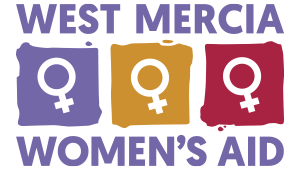West Mercia Women’s Aid
Support for Children and Young People
Helpful Resources
Information on a wide range of organisations, services and apps that can provide specialist help and support can be found on our Resources Page.
Safety Planning Support
A safety plan can help to protect your child against future violence and abuse – download our Information About Safety Planning With Children.
Different types of abuse
Abusive behaviour can show itself in different ways, some examples may include.
Physical – hitting, kicking, punching, pushing.
Emotional – saying hurtful things, put downs, threats, controlling what someone can do. Pressure and coercion (coercion is when someone uses power and control as a way to scare someone to do what they want).
Sexual – making another person do something sexual, making someone watch something sexual or anything of a sexual nature that makes someone feel uncomfortable or unsafe.
Financial – controlling someone’s money, not allowing them to spend money, not giving them money for basic things, getting someone into debt.
Digital – looking through someone’s phone, checking their social media.
Anyone can be abusive, for it to be domestic abuse it is someone in the family home, extended family, boyfriend/ girlfriend or ex.
I think I may be in an abusive or toxic relationship?
Do you feel scared and controlled?
Does your boyfriend/girlfriend go through your phone and check who you’ve been talking to?
Do you feel pressured into doing things you do not want to do?
Do they message you constantly and get angry if you do not reply?
Do they tell you what to wear?
Do they hurt you?
Do you stop you seeing your friends and family?
Do you have to change your behaviour?
Abuse in teenage relationships is when you feel scared or and controlled by the person you are in a relationship with or used to be in a relationship with. This can happen to anyone but remember, relationships shouldn’t hurt. You deserve a relationship that is equal, trusting, and safe where you can be yourself. Abuse is never your fault.
The Children and Young People’s team can offer you support if you have or are experiencing or witnessing domestic abuse at home, or if you think you may be in an abusive or toxic relationship yourself.
Support for Children and Young People
What is Domestic Abuse?
Everyone deserves to experience safe and respectful relationships, but if an adult in your home is using bullying or violence to get another adult to do what they want that is called Domestic Abuse. Nobody should have to experience domestic abuse and it is never the fault of children or the person being hurt.
‘Domestic abuse is any type of controlling, bullying, threatening or violent behaviour between people in a relationship. But it isn’t just physical violence – domestic abuse includes emotional, physical, sexual, financial or psychological abuse.
Abusive behaviour can occur in any relationship. It can continue even after the relationship has ended. Both men and women can be abused or abusers.
‘Domestic abuse can seriously harm children and young people. Witnessing domestic abuse is child abuse, and teenagers can suffer domestic abuse in their relationships.’ (NSPCC)
How can we help?
Our Children and Young People Services team (CYP) work with and support all Children and Young People who have or are currently experiencing domestic abuse within their home or who are experiencing hurtful and abusive behaviours within their own relationships.
What is a Children and Young People’s Worker?
A Children and Young People’s Worker is someone who has experience and training of working with and supporting children and young people affected by domestic abuse, and the issues and challenges that may be facing them. Your worker will listen and support you and your family to find the service that feels right for you. Our workers deliver group support, 1:1 support and more recently in response to the Covid19 Pandemic remote and virtual support opportunities. Find out more about Our Services.
All of our support work with children and young people is private and confidential, unless we feel someone is at risk of harm, we will discuss this with you in more detail when we first meet.
Looking for help?
DOMESTIC ABUSE HELPLINE
Herefordshire & Shropshire:
Call 0800 783 1359
Telford & Wrekin:
Call 0800 840 3747
Worcestershire:
Call 0800 980 3331
Contact us via email:
helpline@wmwa.org.uk
We also have Livechat available from 9am until 5pm, Monday to Friday for those who want to contact our helpline silently or who prefer to text rather than talk.
If you are in immediate danger please call 999
